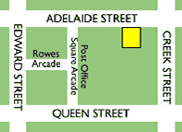Taking your child for their COVID vaccination
January 13th, 2022We have given a lot of immunisations over the years and here are my suggestions to help your child have the best experience getting their COVID vaccination. Ideally, you want this to be a bit of a non-event.
Discuss briefly in advance
Have a discussion with the child a few days in advance of their visit, and generally just once. The discussion could be along the following lines: that they are going to see Dr. Deb and they will need to have an immunisation against COVID.
I have seen children get very distressed when this discussion is not done or left to the last minute i.e. it is ‘sprung’ on the child when they are just about to have their immunisation. Children do need the opportunity to mentally prepare themselves or ask questions. Do not lie to the child about what is going to happen, and say they are going for a checkup or whatever – it does not help at all.
In particular, if a parent is very anxious about immunisations never let the child see this anxiety.
It is best not to repeatedly remind children that the visit is coming closer. If children are reminded every day in the days leading up to the visit, the child will absorb the parent’s sense of drama and the child will become more worried, more stress hormones will flow. A frightened child will prolong the process and make things worse.
Tone of voice is important
During the discussion, the child’s questions should ideally be answered in a matter-of-fact way. Try to speak in the same tone, as if you were describing a visit to the shops – a fairly mundane experience – needing no unnecessary fanfare… This should be the same tone as you would say “We are having toast for breakfast” If there is any sense of drama present in the discussions, children will absorb this, and it will make things harder for the child, not just this time but for their booster after 8 weeks, and any immunisations in the future. It is most important caregivers do not say things like “this is going to hurt a bit and you will have to be really brave” as the child may hear “….it must be really bad if I have to be brave!
Help them know what will be happening
The immunisation will be a tiny percentage of the time spent during the visit. Talk to the child about all aspects of the visit. For example; we will be going into the city (by car? by bus? by train?), we will have a chat with the doctor, we will sit on their couch, the parent/caregiver will hold their hand, the immunisation will be a bit annoying, we will practice thinking about our happy place, we will have to wait in the waiting room for 15 minutes, what shall we bring to do during the wait time, where will we go afterwards?
Some children may benefit from wearing their ‘superhero’ shirt, or their travelling shirt etc. For young children, you might encourage the child to bring a special toy along to the visit. Our nurses can even ‘immunise’ their toy as well.
Words matter
Try to avoid words such as ‘needles’ or ‘painful’ or ‘jab’. In discussions, parents should describe the feeling in the arm by saying the immunisation will be annoying.
What can they think about during immunisation
Help the child practice imagining being somewhere nice or doing something nice for the few moments while the immunisation is being given. Some children might count backwards, or sing.
A little positive reinforcement for good behaviour is important but in my view, it is not ideal to promise children lavish treats for being ‘good’ as it reinforces the drama and the subliminal message that this is a big deal.
On the day, make sure the child is well-rested and not hungry. Please arrive within 5 minutes of your appointment and if necessary wait somewhere else before you enter the clinic. Only the child with the appointment and the caregiver should come to the clinic, to minimise the number of people in the waiting room.
Every child is different
Each parent knows their child and these suggestions below must be interpreted based on the age of the child, and parents’ knowledge of the child’s personality. Helping children learn to deal with discomfort for the “greater good” of their health, is a useful childhood lesson. If you think your child might become very distressed please talk to our staff beforehand.
The Australian Government information on the COVID vaccine for children 5-11 year old is here



